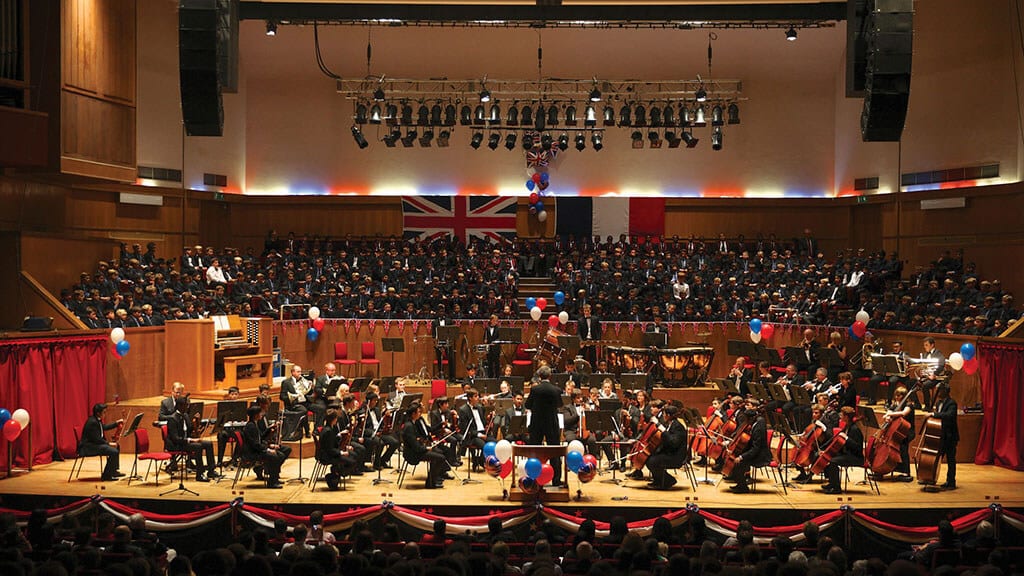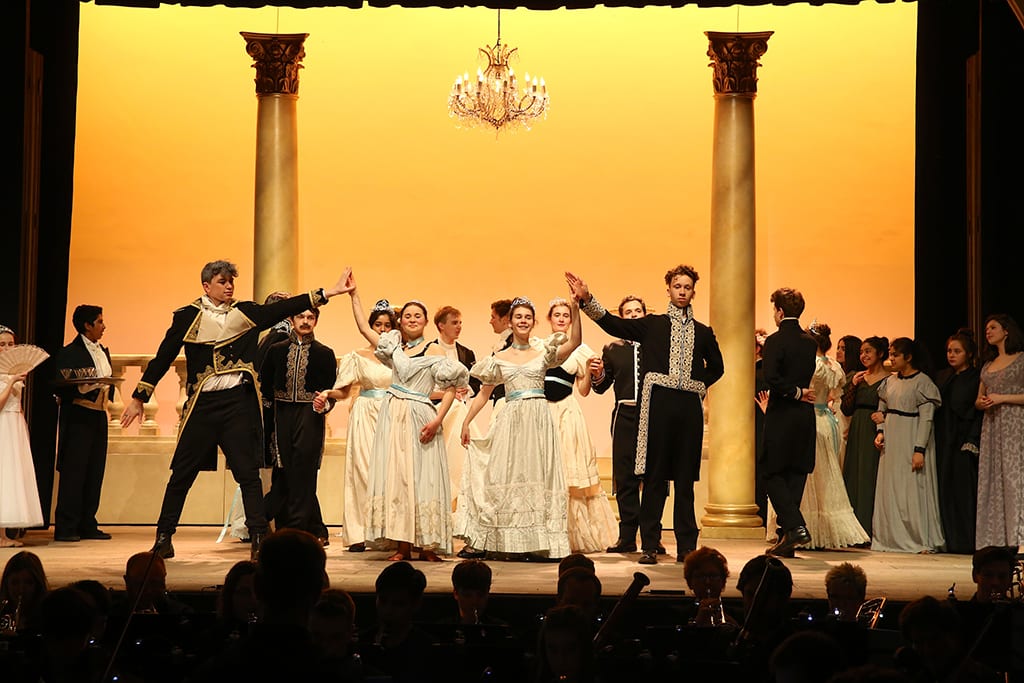For a school to take on a production of Eugene Onegin might seem over-ambitious madness – Whitgift School has done just that and made a storming success of it. A cast including five professional singers and a range of amateurs of all ages, an orchestra of talented young musicians reinforced by members of the school music staff, and a backstage crew whose enthusiasm and love of drama has clearly carried all before them, has produced a version of the opera that does Tchaikovsky’s masterpiece full justice.
The story is of the supercilious, easily-bored Eugene Onegin and the innocent novel-reading Tatyana Larina. They meet at her family’s remote country estate. She impetuously declares her love for Onegin but he pompously rejects her – “Try to practice self-control” he sings. After a futile duel in which he kills his best friend Lensky, he wanders the world. When he returns to Petersburg three years later, still bored, he finds Tatyana has married his elderly cousin, Prince Gremin. Onegin finds he now desires her but, despite his pleading (and Tatyana’s reluctantly admitted love for him), she will not betray her marriage vows. The opera ends with Onegin in despair.
Jon Stainsby’s Onegin is every inch the bored aristocrat looking down his nose at the rustic revels of the Larin estate. His fine baritone is equally effective as he sneers his way through Tatyana’s name day celebrations and when emotion overwhelms him as he finally admits to himself that he loves Tatyana. In that role, Rannveig Karadottir manages the difficult transition from rural naïve to urban sophisticate with real style. She sings the famous and demanding letter scene beautifully with just the right blend of eagerness and self-doubt. Peter Aisher brings to the role of the doomed poet Lensky a lovely tenor voice and a characterisation that leads poignantly to the inevitability of his being the loser in the duel. Polly Leech is lively and carefree as Tatyana’s sister Olga, unthinkingly hurting the fragile feelings of Lensky. Her duet with her sister in the first act was beautifully sung. David Durham has the creamy low notes to make the most of Gremin’s aria in the final act.
Though the five professional singers are splendid, it is the combination of their skills with the raw talent and enthusiasm of the boys of Whitgift and the girls of Old Palace School that makes this such an inspiring event. The very first chorus as the peasants come in from the fields to greet Madam Larina and her family was spot on – sung with such verve and accuracy that the audience knew we were in for something special. Young singers took on the smaller roles including Madam Larina, the nurse and Monsieur Triquet and all performed with real promise. The big chorus was well drilled, sang splendidly, provided plenty of background action and even managed complicated scene changes in semi-darkness.
It is difficult to imagine the amount of hard work that the creative team – conductor Philip Winter and co-directors Rosanna Whitfield and William Searle – must have devoted to bringing their team of singers, dancers, actors, and musicians to the level needed to create such a convincing version of Onegin. Of course, there are some ragged moments – there are some compromises necessitated by having no pit for the orchestra, not all teenagers enjoy waltzing and some of the young singers don’t yet have the mature vocal power needed to do full justice to the roles they play, but every single performance is a triumph of enthusiasm and love for music. It is not often I can say that even at Covent Garden. And for those of us who want to see opera thrive, what better introduction can there be for young people than to participate in the staging of one of the genre’s great masterpieces?



